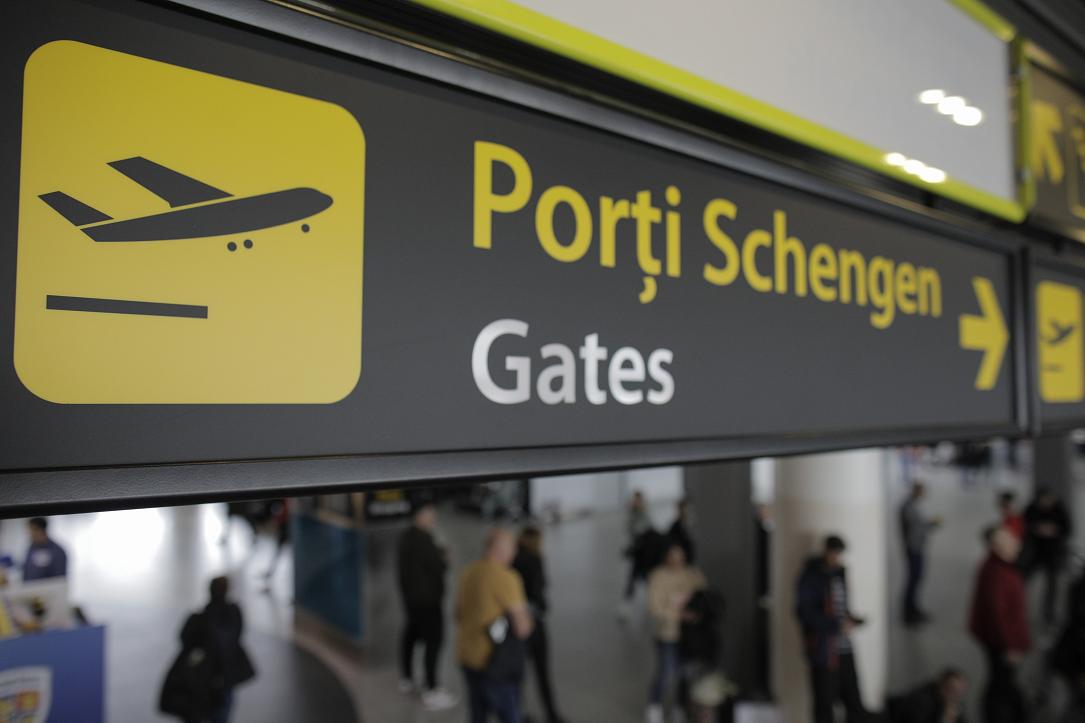Romania opens new terminals at Timisoara, Iasi airports in time for Air Schengen



New terminals were inaugurated at the Timisoara and Iasi airports on Friday, March 29, the most important in the west and eastern parts of Romania. The two terminals opened just in time for Romania to become part of the Schengen Area with its airports (Air Schengen) and maritime borders.
The new Schengen Terminal of Timisoara International Airport covers an area of 8,000 square meters and can process 800 passengers per hour. The investment amounts to RON 190 million (EUR 38.2 million), with the majority of funds coming from European funds through the Large Infrastructure Program.
Construction of the new terminal began on November 1, 2022, and lasted 489 days.
The building includes a check-in and ticketing hall, a circulation hall in the public area, which also includes a connection to the Schengen Arrival Terminal, operational since 2021, a passenger and baggage security control hall, which also includes commercial spaces, a passenger regrouping hall, where there are 8 boarding gates and which is arranged on 3 levels, with pre-boarding counters, a food-court area, and a business lounge area, according to News.ro.
In total, 18 check-in counters have been installed, as well as self-check-in equipment and 6 automatic document scanning gates. The processing rate is high, at 800 passengers per hour, which means that 8 aircraft can be operated simultaneously.
Present at the inauguration in Timisoara, prime minister Marcel Ciolacu argued that Romania’s cities are finally developing. The official, who is also head of the governing Social Democratic Party, the candidates of which are gearing up for local and parliamentary elections on June 9, highlighted the investments that the government has made.
“There are hundreds of millions of euros that will be invested in the coming years in the port of Constanta, as well as in the other ports we have on the Danube. All these investments give me confidence that Romania is ready to join the Schengen area, both in terms of air and maritime borders. In less than 48 hours, Romanians traveling to Schengen will forget about the traditional airport checks. They will go directly to the boarding gates," the prime minister pointed out, cited by News.ro.
“From March 31, we have 'Air Schengen' and maritime Schengen. It's a first step that confirms we are on an irreversible path. It's a victory for Romania and for all those who believed in this project," he said. He also added that the government has “a plan to achieve full Schengen accession by the end of the year, including land borders."
The new T4 terminal at the Iasi International Airport was built by Strabag, and was also inaugurated just in time for the commencement of flights in the Schengen airspace. The project, valued at approximately EUR 65.6 million, was completed in 16 months. Approximately 600 professionals worked on the construction of the terminal.
The new terminal is designed to accommodate up to 3.5 million passengers per year and brings increased capacity and streamlined passenger processing during peak hours – up to 950 passengers per hour. It has 20 check-in desks, 12 self-check-in systems, 14 boarding gates, six security filters, three jet bridges, VIP and business lounges, commercial activity spaces, and other related areas.
The project also included reconfiguring access roads to the airport and increasing ground parking capacity from 350 to 600 parking spaces. Additionally, a photovoltaic park was constructed. Terminal T4 spans over one hectare, is developed on three levels, and adds a total area of over 31,000 square meters to the airport infrastructure.
While Romania’s land borders will still be subjected to border controls even after March 31, its airports will be part of the Schengen Area, meaning that those set to fly to the Schengen countries will not be subjected to border checks. Bucharest’s Henri Coanda airport (also known as Otopeni) is also preparing for Air Schengen and announced that it will have a temporarily limited capacity at the border control points until March 31.
(Photo source: Inquam Photos | Octav Ganea)